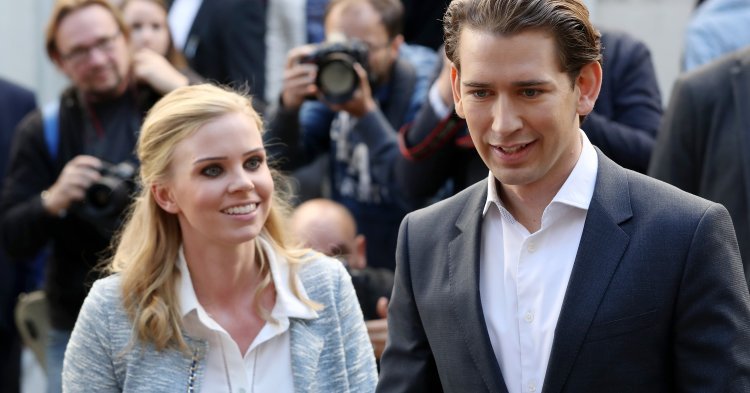Who exactly is Sebastian Kurz?
‘The young wolf of the Austrian right’ according to Le Figaro, ‘Baby-Hitler’ according to Titanic and correctly referred to as ‘the youngest leader in Europe’ by multiple media outlets, Sebastian Kurz has quite an interesting political career. He interrupted his law studies at the University of Vienna in favor of pursuing a political career. He was elected chairman of the youth branch of the Austrian People’s Party and was a member of Vienna’s city council between 2010 and 2011.
In April 2011, he was appointed to the newly created post of State Secretary for Integration. Two years later he got elected with the most direct votes of any member of parliament in the election. From 2013 until present he had been the Minister of Foreign Affairs for Austria. At 27 years old, he hosted talks between Iran, the United States, China, Russia, Germany, France and the UK on the nuclear deal.
One may wonder what it is wrong with all of this. After all, lately, Europe is presented with a young wave of politicians, some of them holding key positions such as Emmanuel Macron, the current president of France. Sebastian Kurz, in turn, is a young leader with valuable political experience. How could this be bad news?
Simply because while he is a young, new face, he represents an old problem in the European politics, namely far-right extremism. One of the hot topics during the Austrian elections had been immigration and there was almost no difference between Kurz’s speech and the speech of the far-right party’s leader, Heinz-Christian Strache.
His main campaign message was to stop illegal immigration into Austria. Other key points included slashing unemployment benefits for asylum seekers and workers from the EU, and reduce government’s aid to refugees. These messages were not that surprising coming from a man who, as minister of foreign affairs, played an important role in 2016 in closing down the Balkan route for refugees flowing into Europe and pushing an Islam Law that regulated the funding of mosques and the ways in which the Quran is translated.
Sebastian Kurz knew how to play his cards when he was elected the new leader of ÖVP in early 2017. He rebranded the party as The New People’s Party, in a hope to show it is time for new things. But the issues and arguments presented during the campaign were the characteristic focus from the far right. Kurz simply presented them in a more moderate way. Just because it is coated in with mild words, it should not blind us from the fact that is the same dangerous far-right rhetoric.
What does this election mean and how will it affect the political climate in Europe?
The main conclusion which can be drawn from this election is that the far right is not dead. After the elections in France and Netherlands earlier this year, which resulted in setbacks for the far right parties, one would think the wave of extremism came and went just as quickly. But if anything, this second half of the year shows the exact opposite.
After the anti-immigration party Alternative for Germany (AfD) managed to be the third most numerous party in the German Bundestag, the next successful hit of the far right had been the Austrian elections. The most likely coalition to govern will be ÖVP (center right) along with FPÖ (far right). So what impact will this have across Europe?
A tilt to the right. Kurz is a prime example of turning a centristic party towards an extreme and many could easily follow his example. Kurz himself could push for a tilt if he wished to. The lines between the center and far right begin to blur, while Europe is finding itself in quite a challenging situation. Losing another country to extremism even if it is under the guise of mild speech, is quite troublesome. Yet, there had been no proper answer from the EU.
Last time when Austria had a shift such as this, back in 1999, Vienna had been isolated thought bilateral sanctions. Now? It seems no one truly cares about it. Maybe far-right extremism is not as surprising as it was almost 20 years ago. Not in a Europe where more countries seem to deal with extremist and separatist parties in power.
In a Europe where the illiberal governments of Hungary and Poland blatantly break the rule of law and common agreements with the EU, Austria’s mild-mannered extremism seems to be just an afterthought. As long as Austria stays out of the Visegrád club, EU won’t truly care nor do anything about it. Austria isn’t on its way to becoming Hungary - or so we hope- but it is in no way close to approving the plans towards a united Europe that other leaders, such as Macron, are trying to push towards.
The first true challenge of this new government will be in the second half of 2018 when Austria will hold the presidency of the European Council. If the Macron-Merkel alliance will push for a sustainable attempt for immigration the new chancellor of Austria will be forced to chose between his anti-migration stance and pro-European ambitions and show us where he truly stands on this problem. Was the campaign for keeping immigrants out only a populist way of getting votes or is he truly serious about implementing a far-right anti-immigration agenda?
We can only keep an eye on Vienna and hope Sebastian Kurz would accept President Alexander Van der Bellen’s request to heed and ensure the European values.


Follow the comments: |
|
